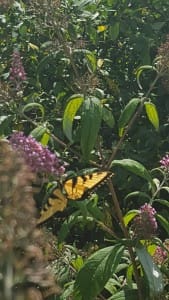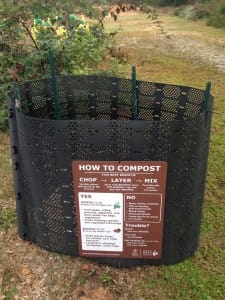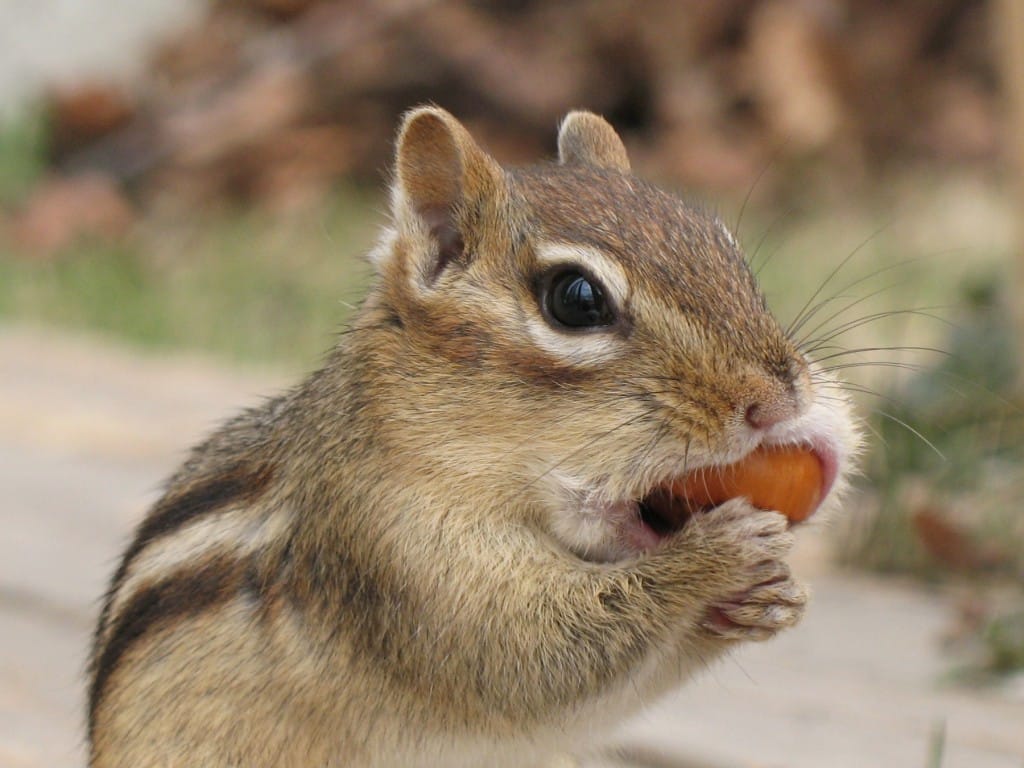One of the beautiful things about all types of gardens is the opportunity to see wildlife – birds, butterflies, bats, beetles, lizards – all types of wildlife. A garden is truly an outdoor classroom. Many school and community gardeners work towards having their gardens become certified wildlife habitats.

Sadly, sometimes school or community vegetable gardens get blamed for harboring undesirable wildlife, like rodents. This can be a real problem for the gardeners.
Is the vegetable garden really the problem?
Wildlife need food, water, and shelter. Those things can be found in a garden, near a dumpster, or in buildings. A large population of rodents need a large amount of food and a few seeds from end-of-the-season garden sunflowers will simply not sustain a large population of rodents.
If your garden is being blamed for a rodent problem, determine where the rodents coming from and what is attracting them. Could it be leftover food from a playground or picnic area? Are dumpsters being improperly used? Has something recently changed, like nearby land being cleared that would displace wildlife and send them into your area? Are bird feeders spilling an excessive amount of feed? Chances are, a vegetable garden may not be the problem at all.
Setting out traps may help you all get a handle on the problem. You should be able to see just how many, and what type, of rodents you are dealing with. For example, voles eat the roots of any type of plants not just the roots of vegetables. If it is just a few rodents you can just trap and relocate them.
Educate community leaders about your garden
If a community leader or school official is concerned about your garden and rodents there are several steps you can take:
- First, demonstrate that you are using proper sanitation in your garden. You are
 not leaving weed piles and overgrown plots for mice to hide in. You are harvesting the vegetables just as they become ripe and not letting overripe vegetable stay in the garden.
not leaving weed piles and overgrown plots for mice to hide in. You are harvesting the vegetables just as they become ripe and not letting overripe vegetable stay in the garden. - If you have a compost pile show that you are not adding things that attract rodents like whole eggs, meats, or dairy products. You are actively maintaining the compost bins/piles.
- Educate the people around you that the soil and watering issues are no different in a vegetable garden than what is found around the traditional landscape plants located elsewhere on the property.
- Maintain good relationships with your community leaders or school administrators. When they see what a positive impact your garden is having eliminating it would be unthinkable.
As a bonus, to assist with a property-wide rodent problem consider adding owl nesting boxes to attract these rodent predators. This would also add another wildlife dimension to your property!
An overall rodent problem is not a reason to eliminate a well maintained school or community garden. For more information see the UGA publication Resolving Human-Nuisance Wildlife Conflicts. Or, contact your local UGA Extension agent. Thanks to the many UGA Extension agents who assisted in this blog post!
Happy Gardening!
- ParSLAY the Day! - June 12, 2024
- 6th Annual Great Southeast Pollinator Census - May 28, 2024
- Are you ready for Pepper Palooza? - July 5, 2023
